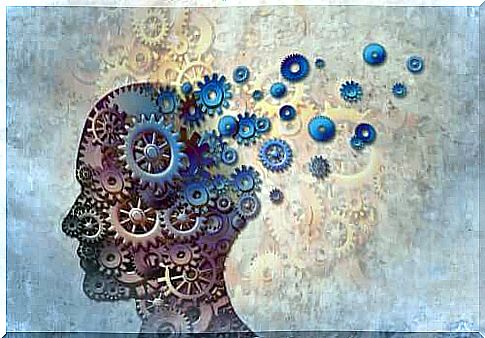The Study Of Oblivion

If the functioning of memory has been at the center of the preoccupations of psychology for centuries, forgetting is no less a curious, fascinating and often frustrating phenomenon. Knowing the type of information or circumstances associated with forgetting can be extremely helpful, not only for our daily life, but also for learning more about memory in neurodegenerative disorders, such as Alzheimer’s or Alzheimer’s disease. other dementias.
Here you will find out what forgetting is, that there are two types of forgetting, and science can hardly prove it exists. Nietzsche said:

What is forgetting?
Forgetting gives its name to a phenomenon in which the imprint formed in memory in relation to certain information is fragmented. There was bad storage, bad retention, or bad memory retrieval.
The details of this information are lost, until the imprint is lost, leaving room for complete oblivion. We can say that the information has been forgotten when the neural network – which at the neurobiological level supports the recovery of this memory – has disappeared. The information permanently disappeared during the recovery process.
Therefore, although forgetting cannot be demonstrated (does the loss of detail make it difficult to retrieve or has it been completely forgotten?), We can consider anything that at some point prevents the person to remember something. Regardless of whether this information is retrieved or not in the future, it can be said to be an oversight.
There isn’t just one kind of forgetting
In the study of the phenomenon called “forgetfulness”, two clinically relevant types have been identified for the treatment of psychological disorders where memory plays an essential role. This is the case, for example, with post-traumatic stress disorder.
The inadvertent omissions are unintentional oversights. Schacter (2003) argues that accidental forgetting is essential for the proper functioning of memory. It is a faculty of the human being which must be adaptive, flexible and which must work in its most optimal capacity. Since memory is not unlimited, if there were no oversights, we would find a glass ceiling on anything we can memorize.
Thus, it is good to forget some information which, at the present time, is not useful. For example, while it is relevant to remember the registration of the first vehicle we drive, the truth is that this type of information can be forgotten, as it is no longer useful and can interfere with current memories. .
The second type of memory is motivated memory : we execute processes or behaviors whose objective is to reduce the accessibility of our memory. It can happen as a result of a traumatic situation, a situation we want to forget. If we forget about it, its footprint becomes weaker.
Accidental forgetting is the most common
Gordon (1995) studied the type of information usually forgotten by chance. This list is not random, and it may explain why many people have difficulty remembering names or why some too often forget where to put the keys.
Here are the most frequent accidental omissions :
- The names. In most cases, when a new name is brought up, we find ourselves in an unusual context. We may be distracted while coding. The new face and the new name are then not yet linked.
- Where did I put the keys? This can concern any other object. By dint of leaving an object always in the same place, we automate the process and, subsequently, we no longer pay attention to it. We are then more likely to know where the box of chocolate a friend gave us for our birthday is than to know where the keys we use every day are.
- I already said something to someone! Sometimes we are able to say something to someone who we have already said it to. On these occasions, source attribution errors usually occur. Because it’s the context that gives us clues, more than the person we’re with.
Here is still other information often forgotten: faces, addresses, current activities, activities done (for example, turn off the gas), comments made.
The Seven Sins of Memory (Schacter, 2003)
The memory must be supported by its users. And few are those who make “mistakes” that encourage forgetting and not memory.
There are seven phenomena that can make memory difficult and prevent it from functioning optimally. Here they are :
- Transition. Forgetting is linked to the weakening of the imprint and the passage of time.
- Distractibility. When people are distracted, stressed, or on a double task, there is no deep coding. Memory stores more information than we want to remember, and that is why selective attention is so relevant.
- Blocking. Deadlocks can occur due to the collection of inappropriate information in the moment.
- Bad attribution.
- Suggestibility.
- Propensity. Our attitudes and emotions can transform our memory and thus call into question its reliability.
- Persistence. As memories loop, their content changes over time.
Sins 1, 2 and 3 would lead to errors of omission. Whereas sins 4, 5, 6 and 7 would result in errors of commission. The subject remembers something but does not remember it well.
Forgetting persists in some anxiety disorders, such as post-traumatic stress disorder or dissociative disorders. The study of forgetting may therefore be relevant for the treatment of these distressing disorders. Theories and laws can also be established by relying not only on memory, but also on forgetting, such as Just’s law :








